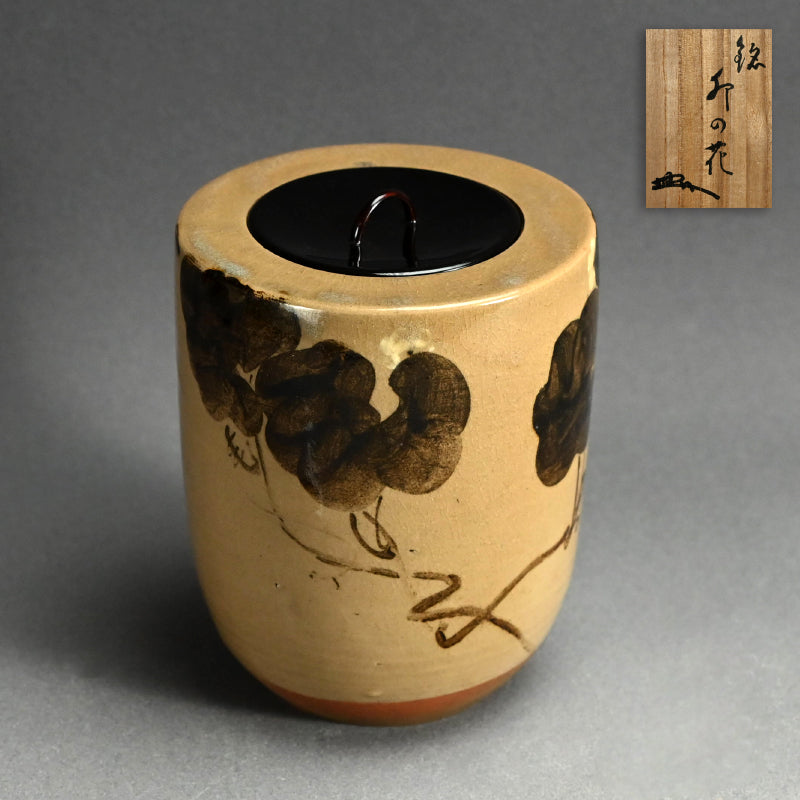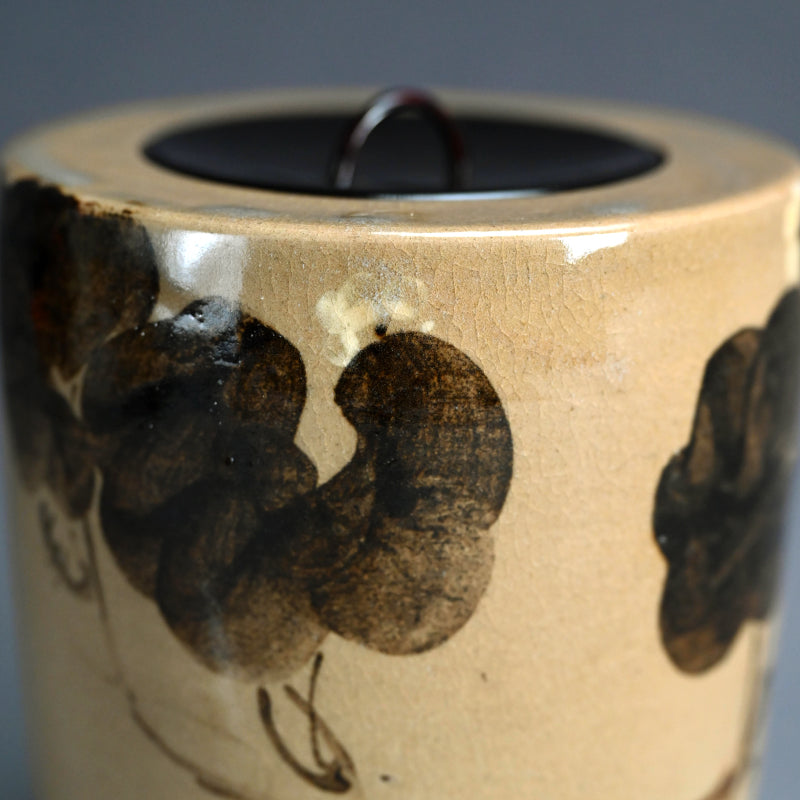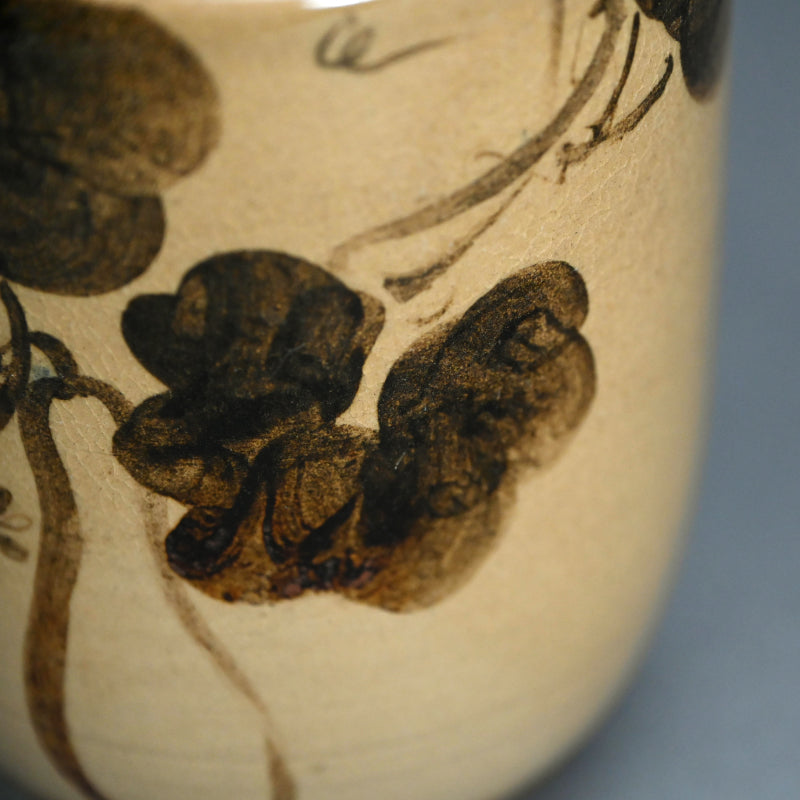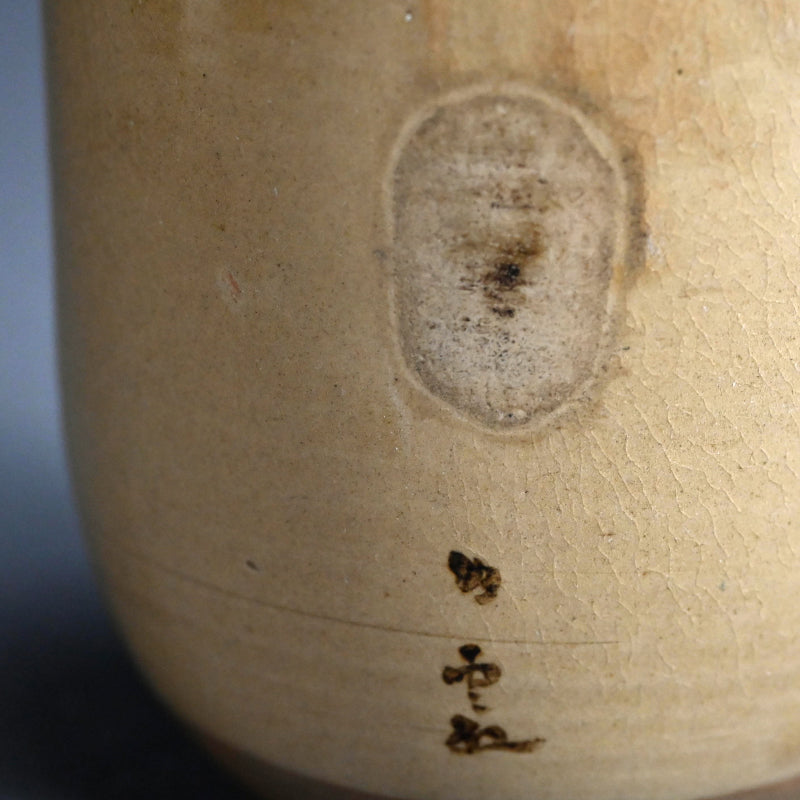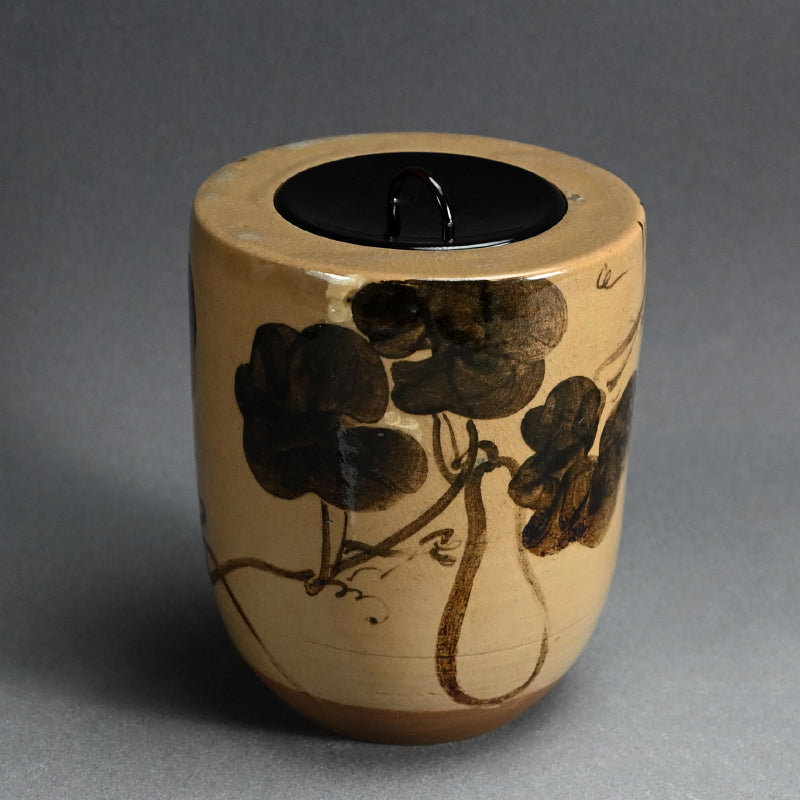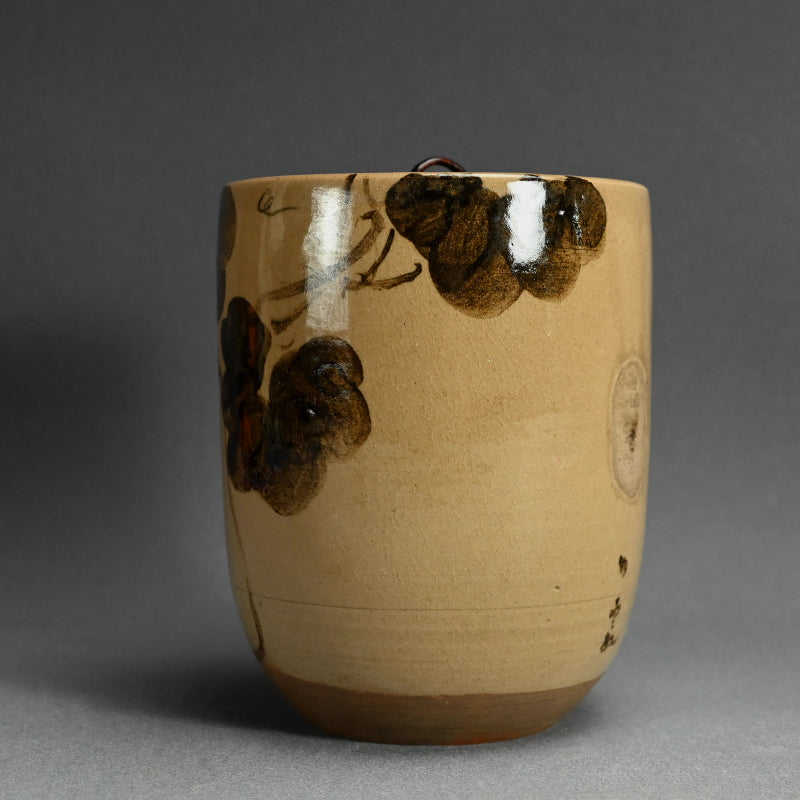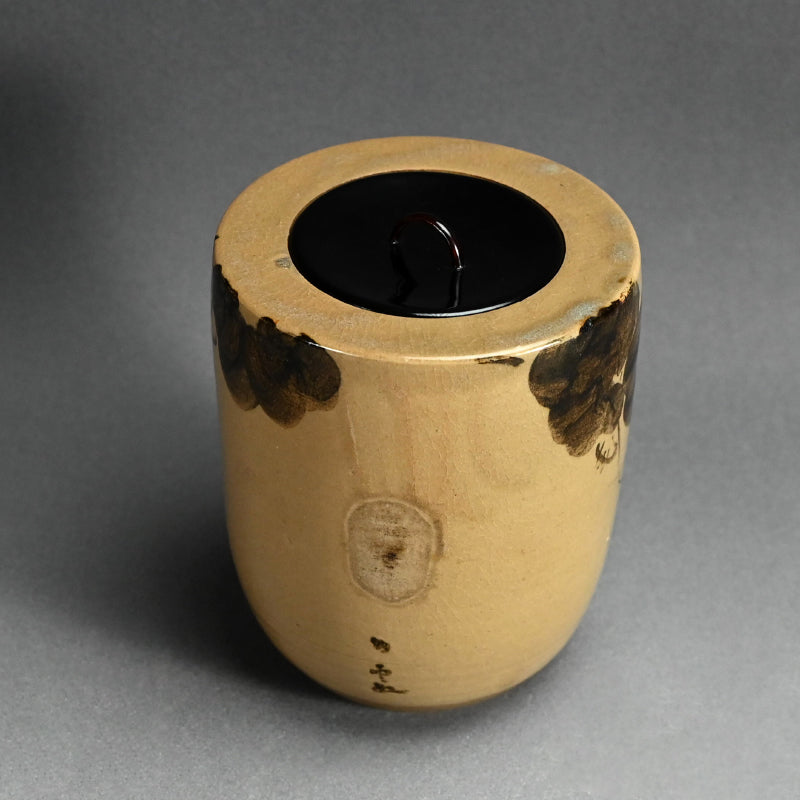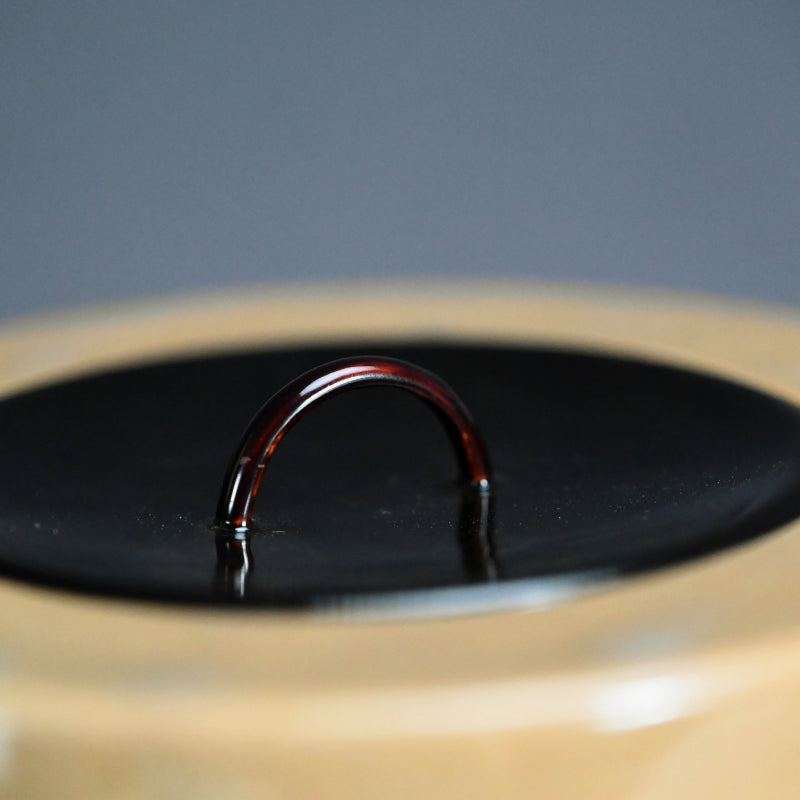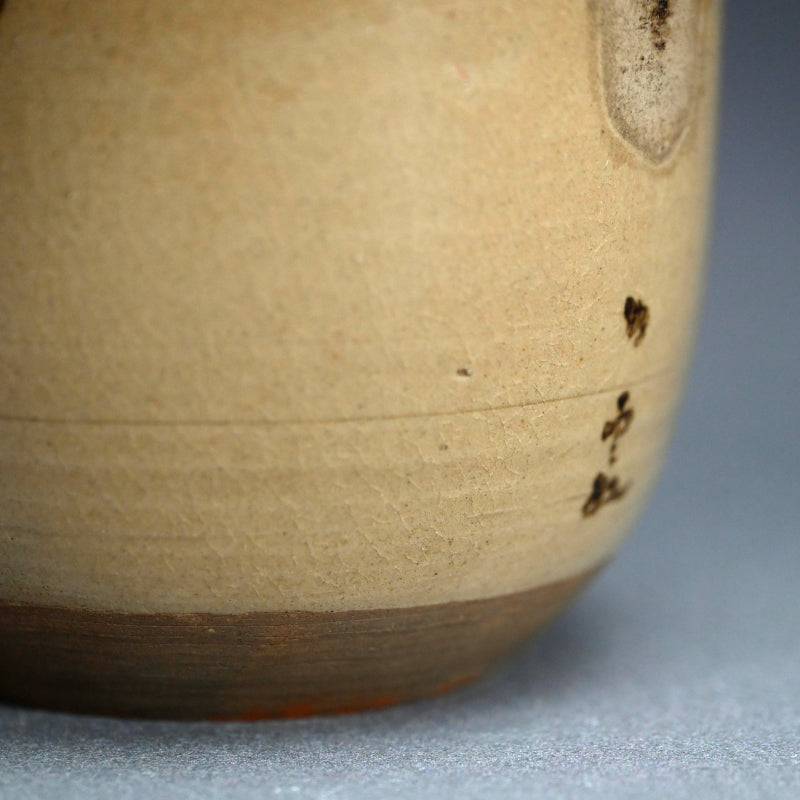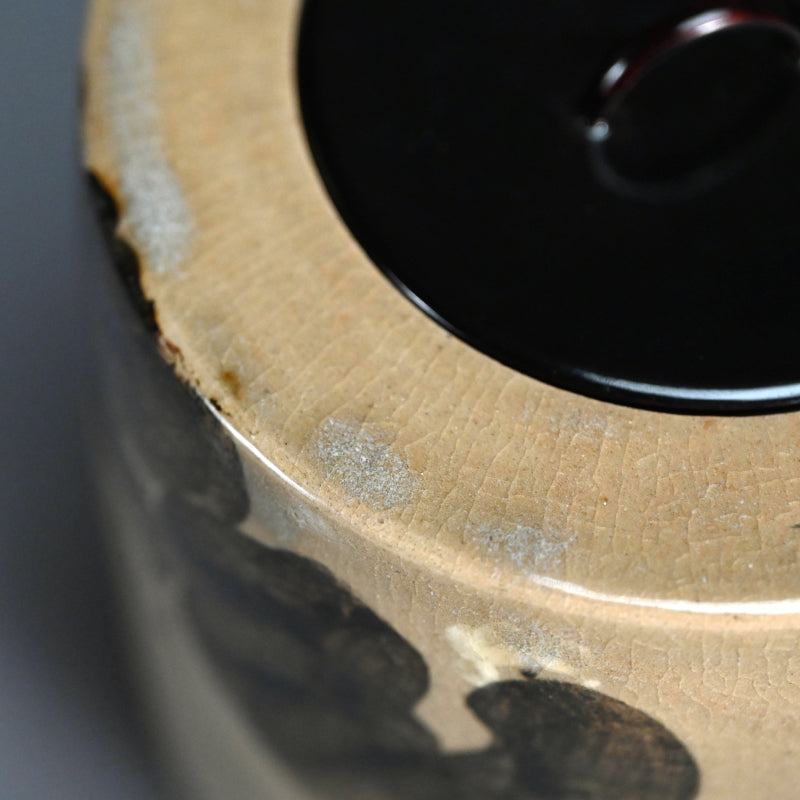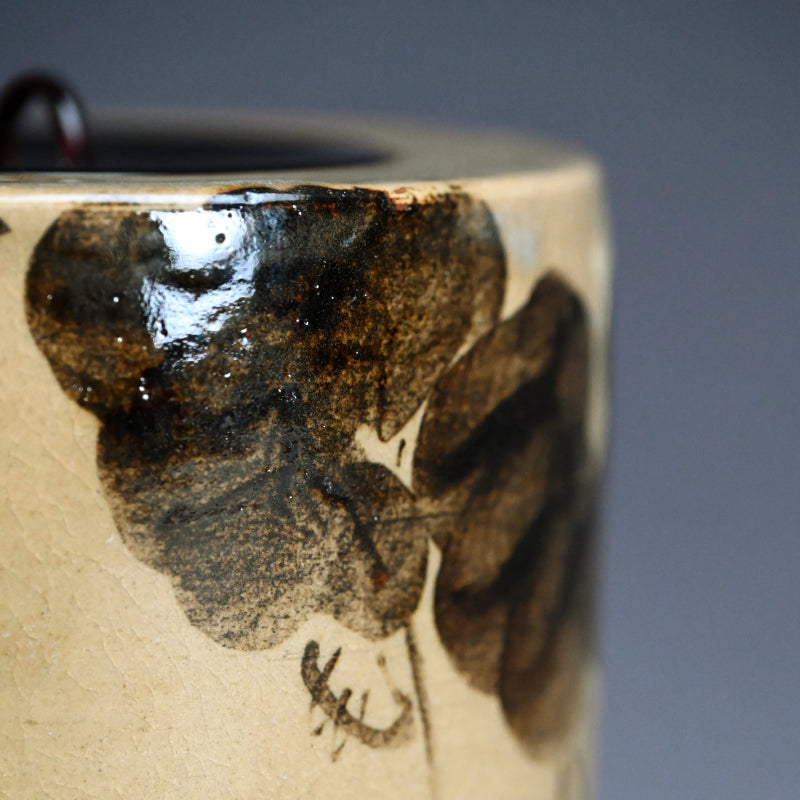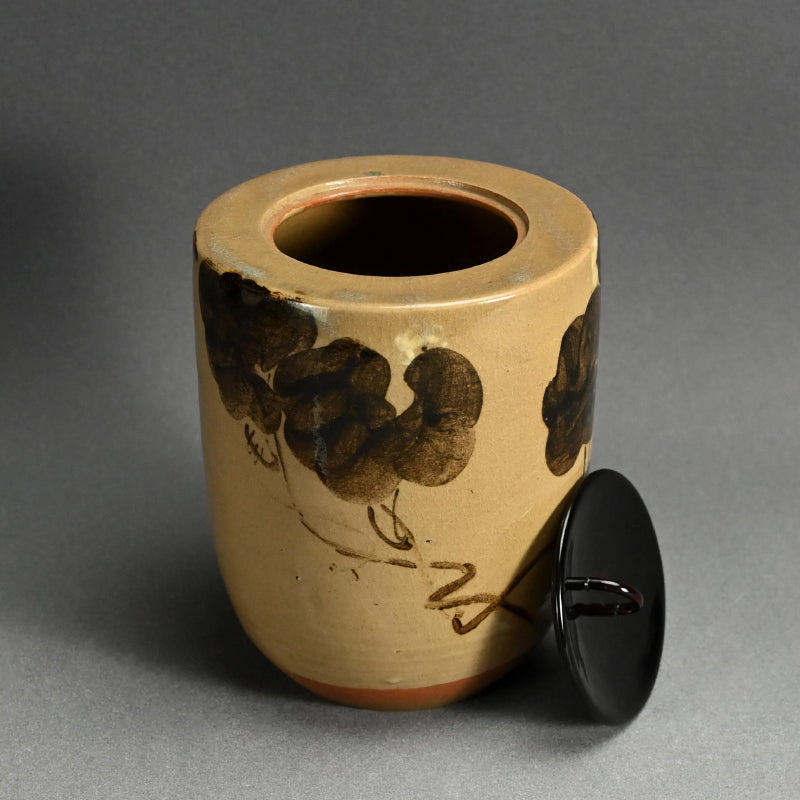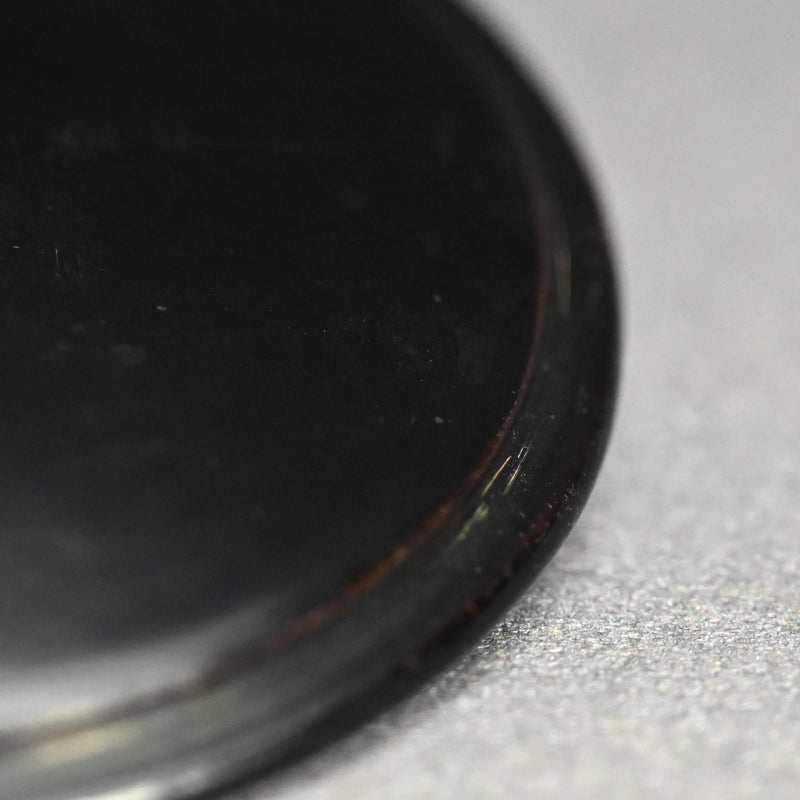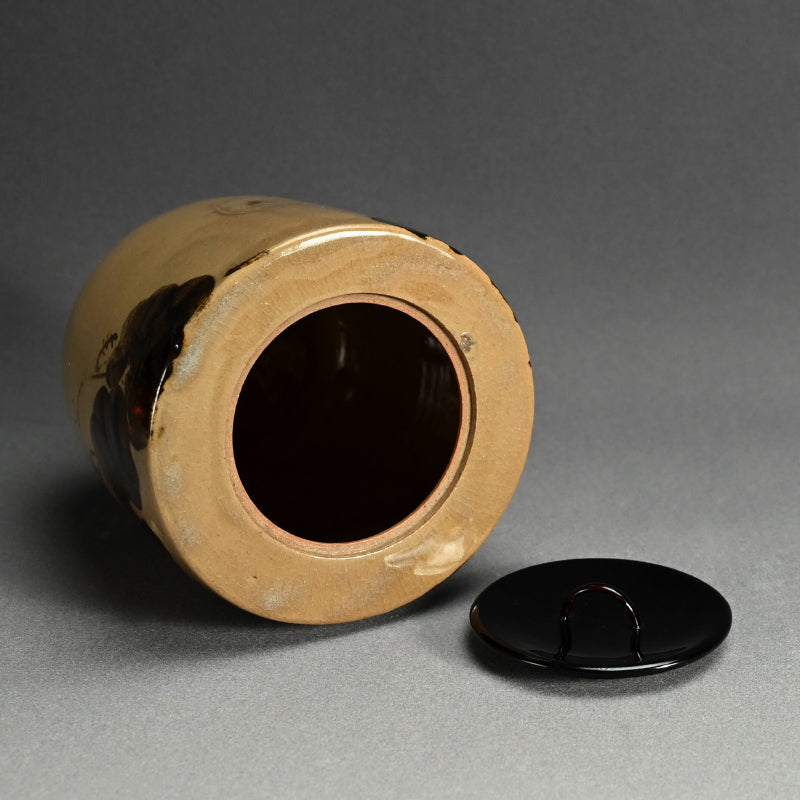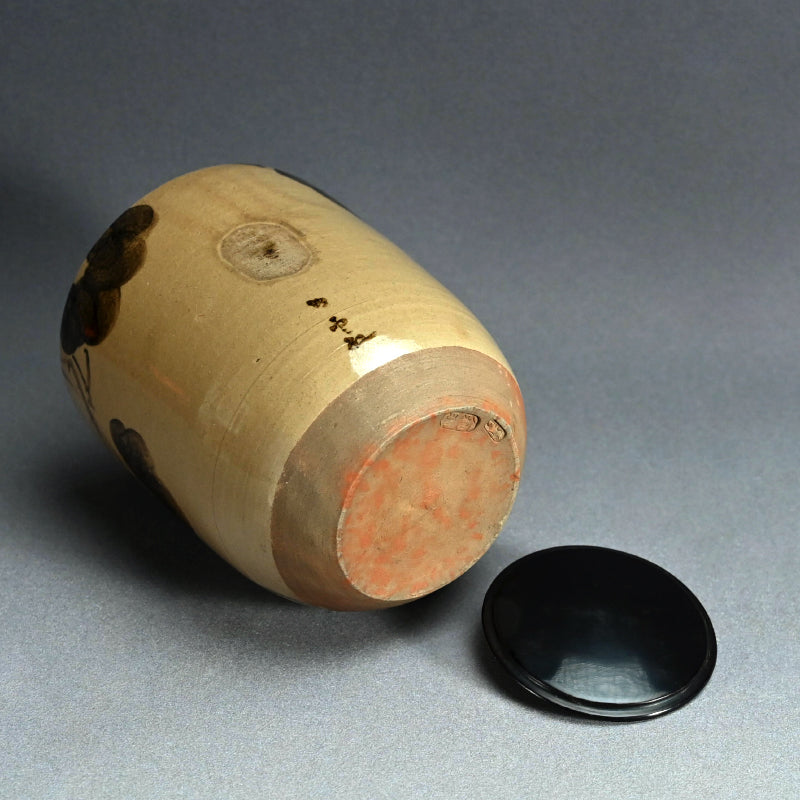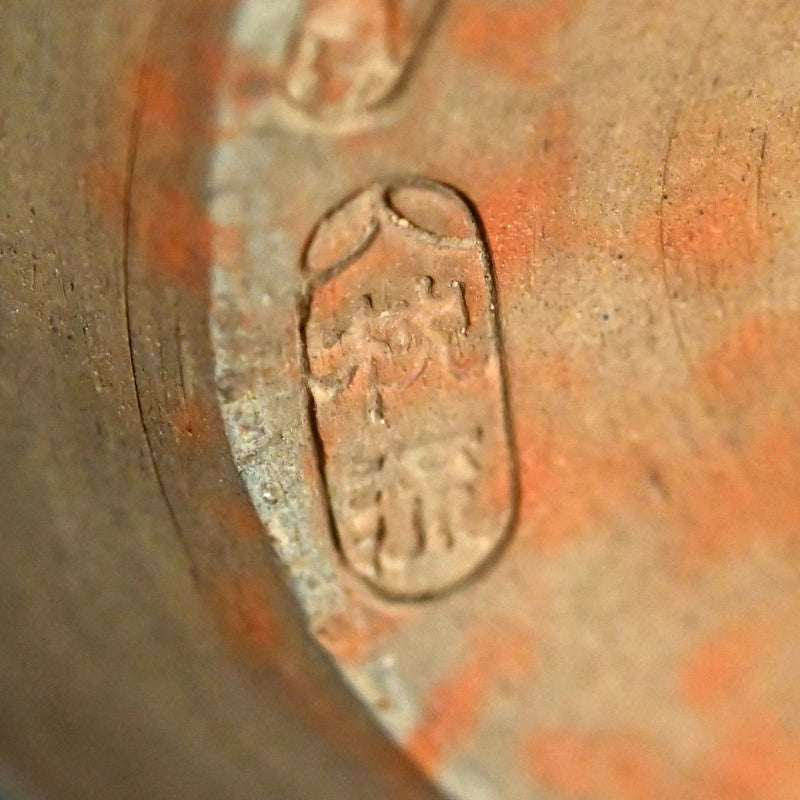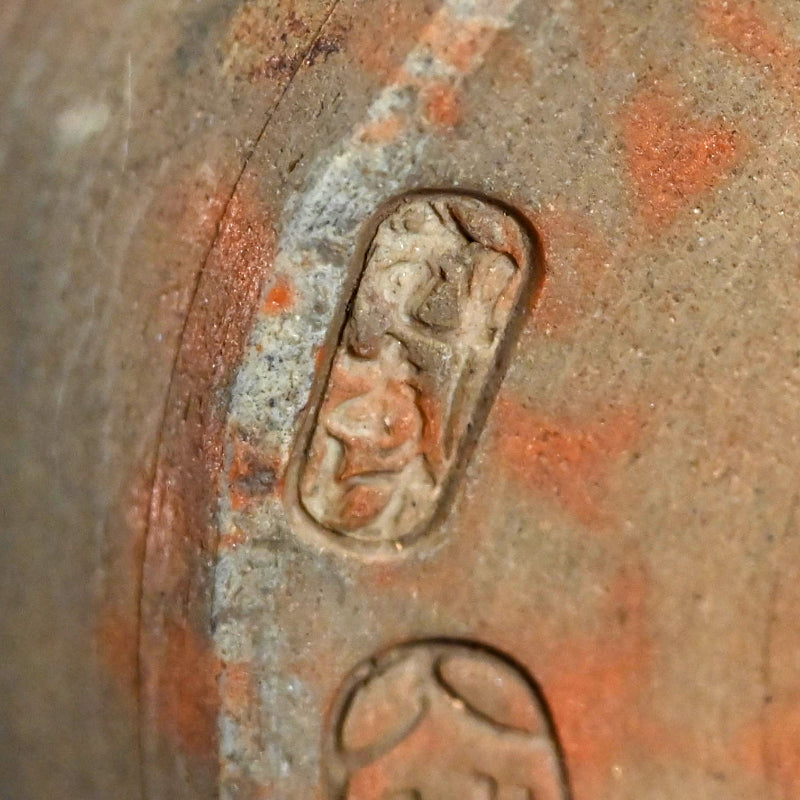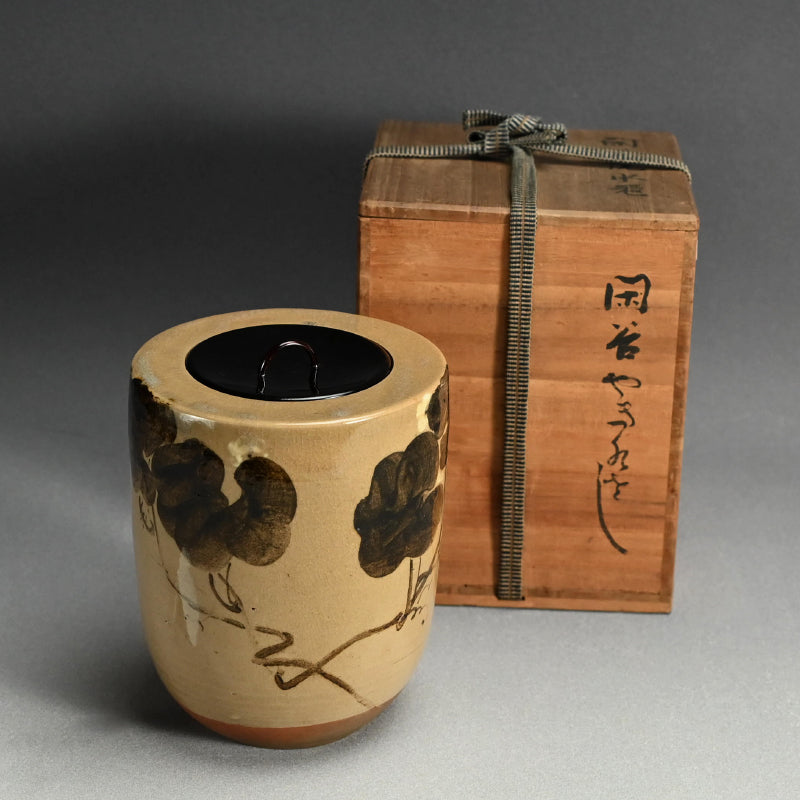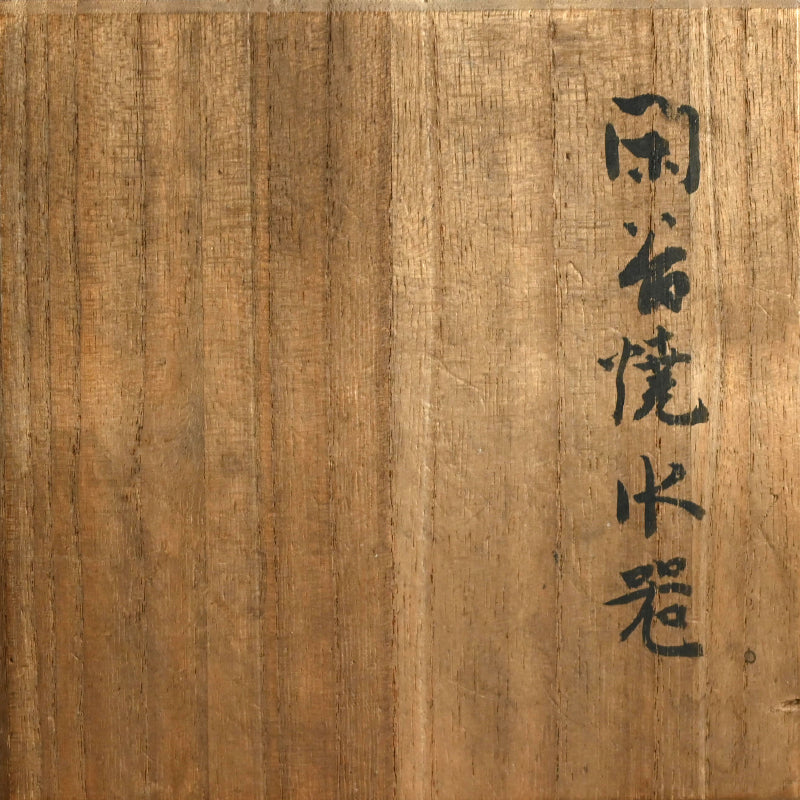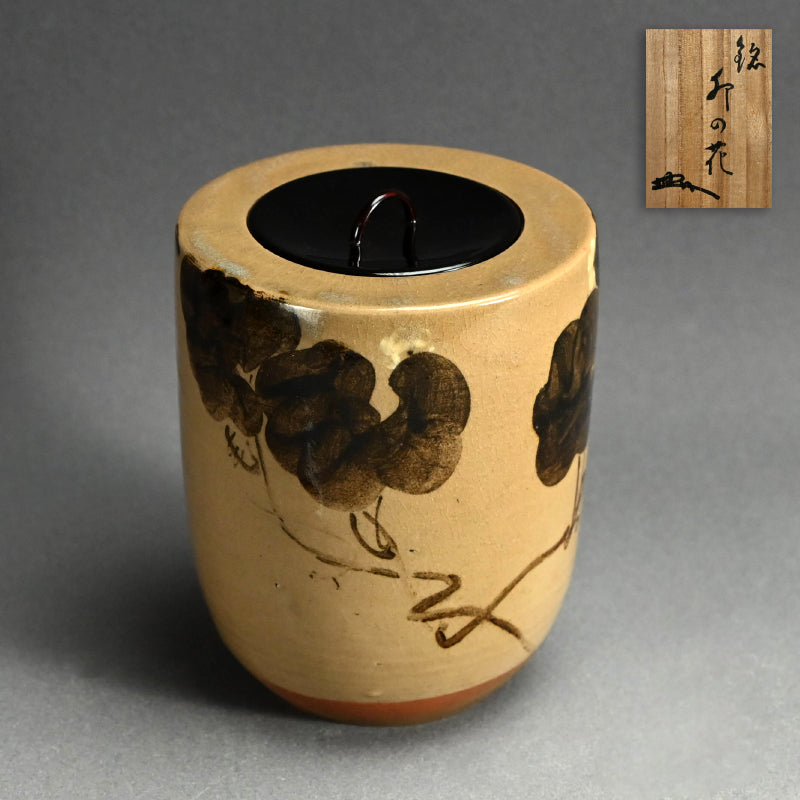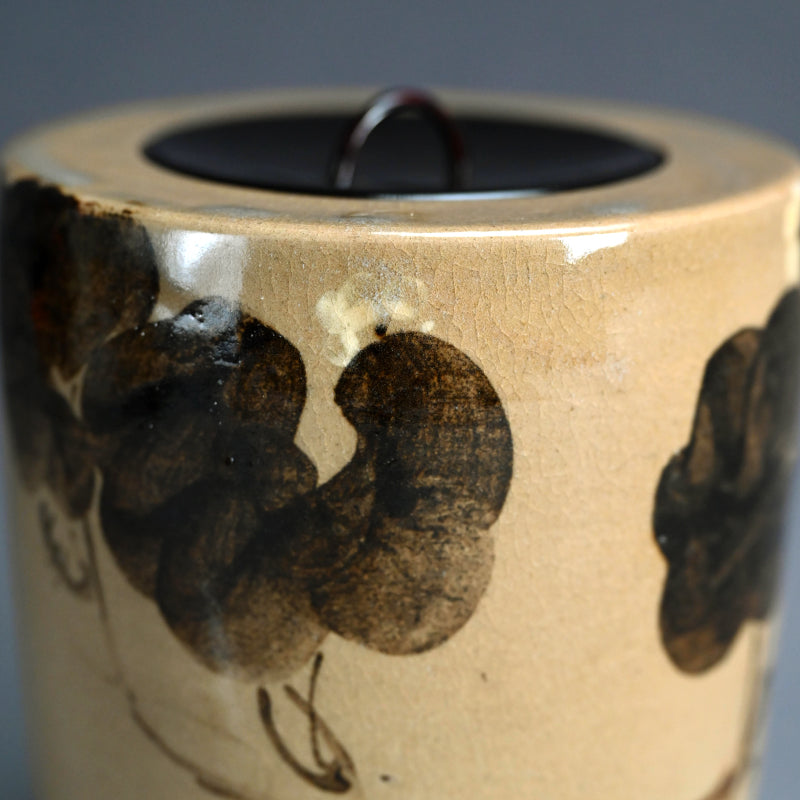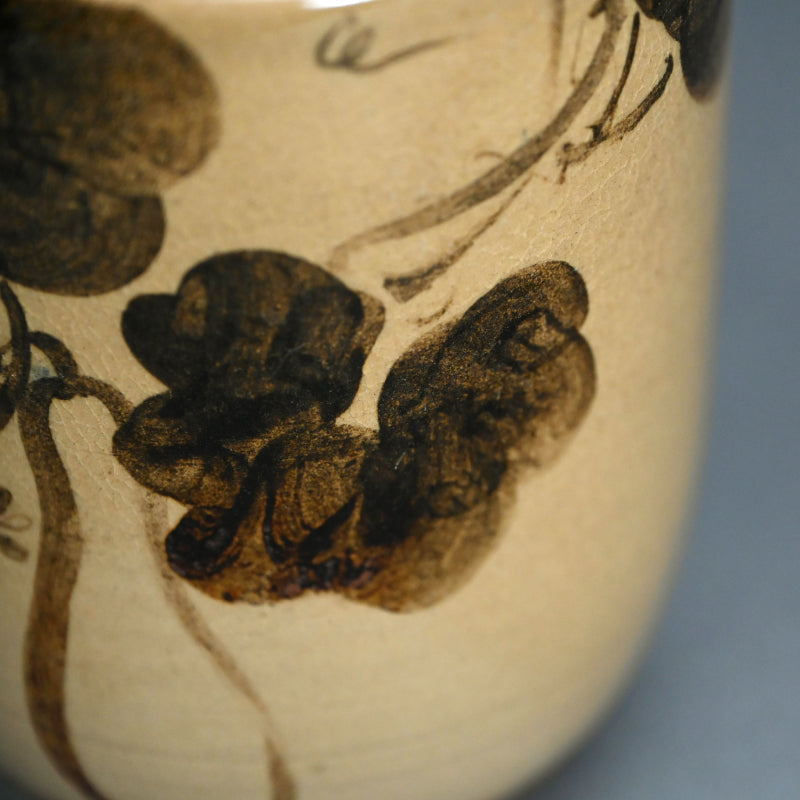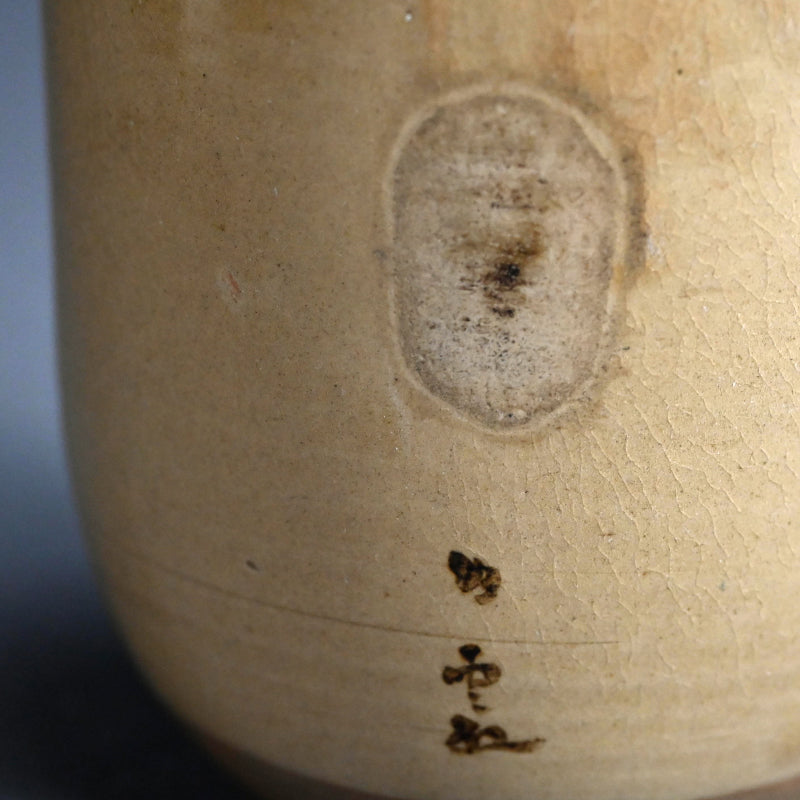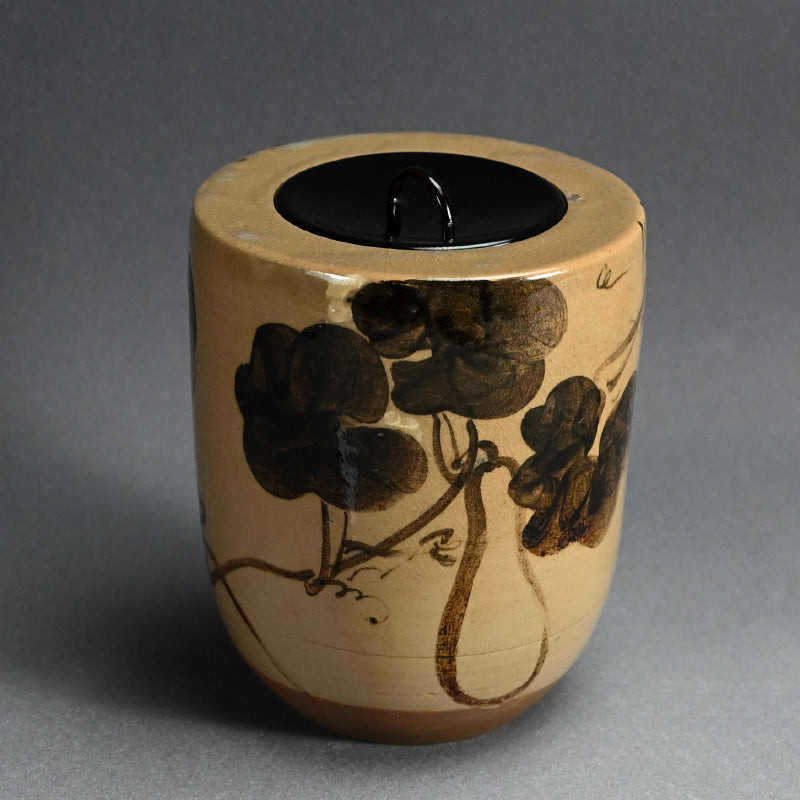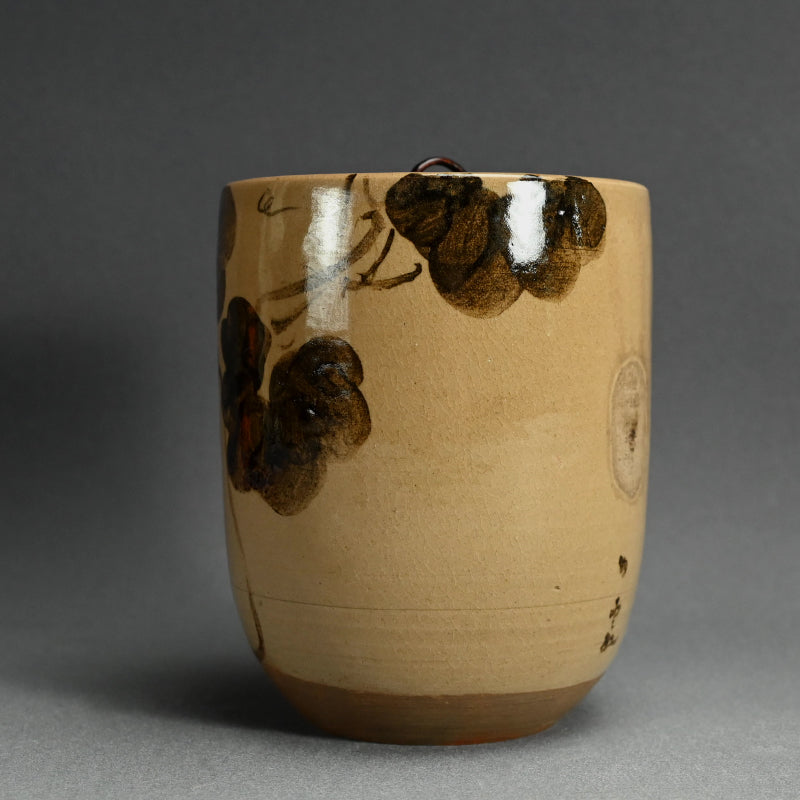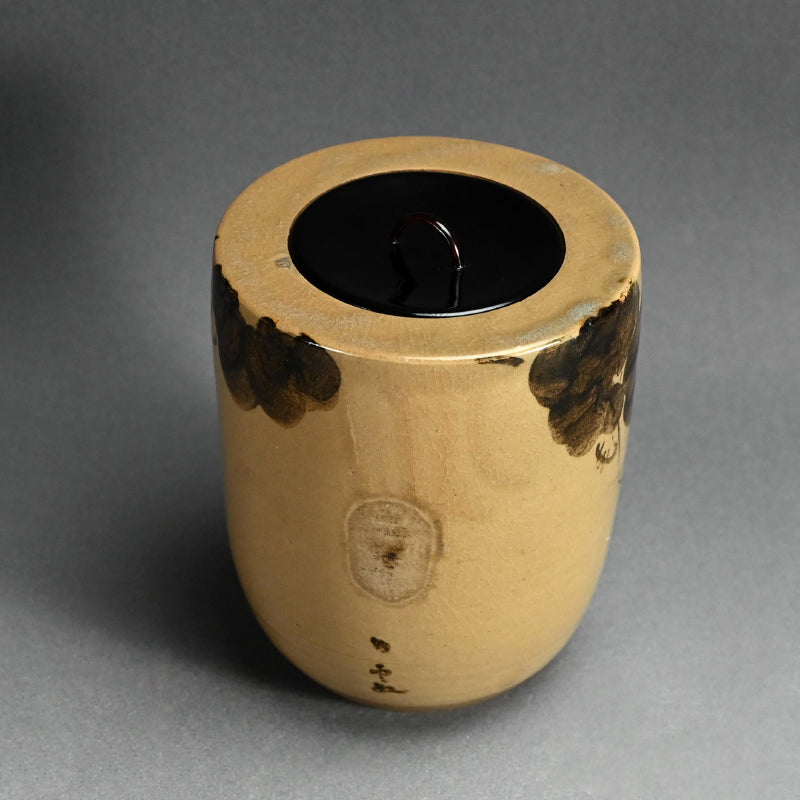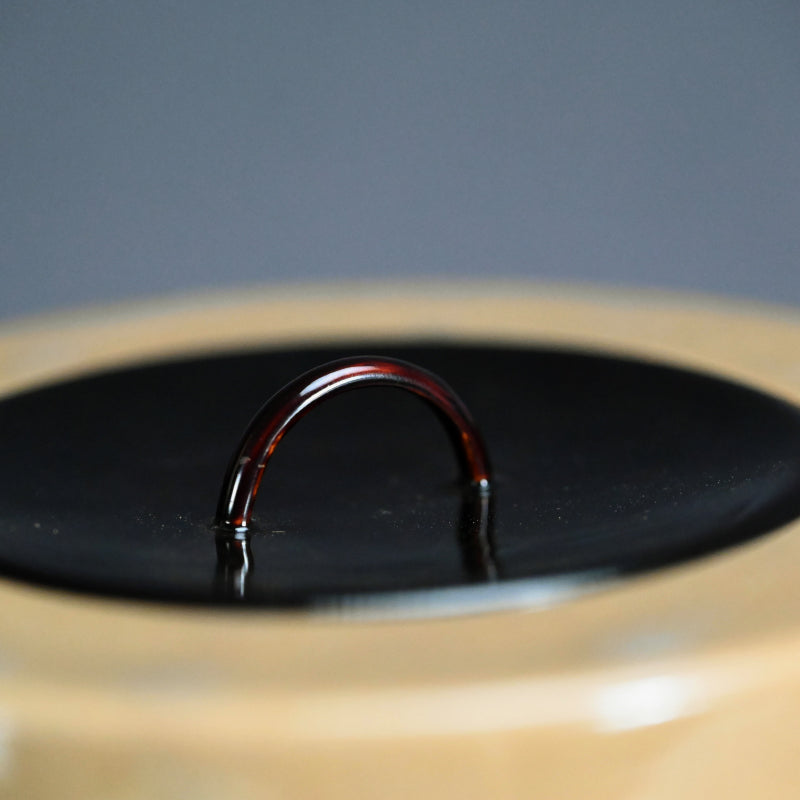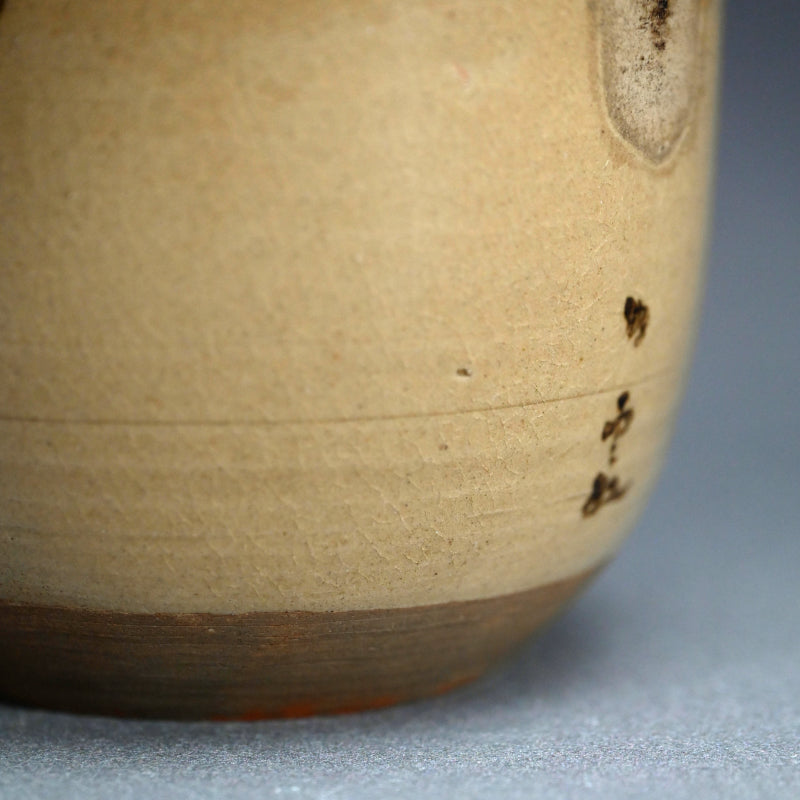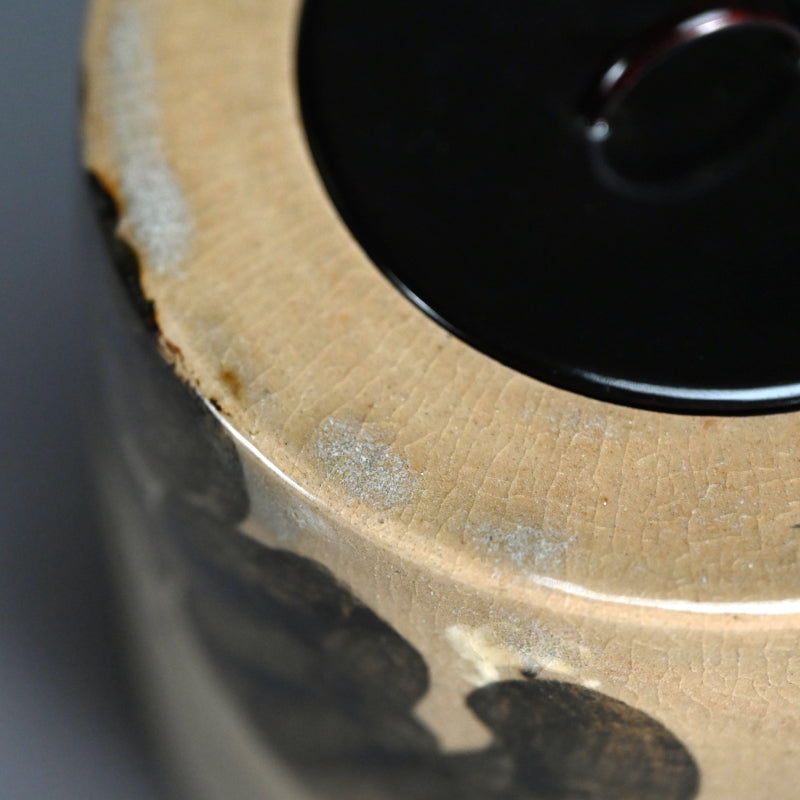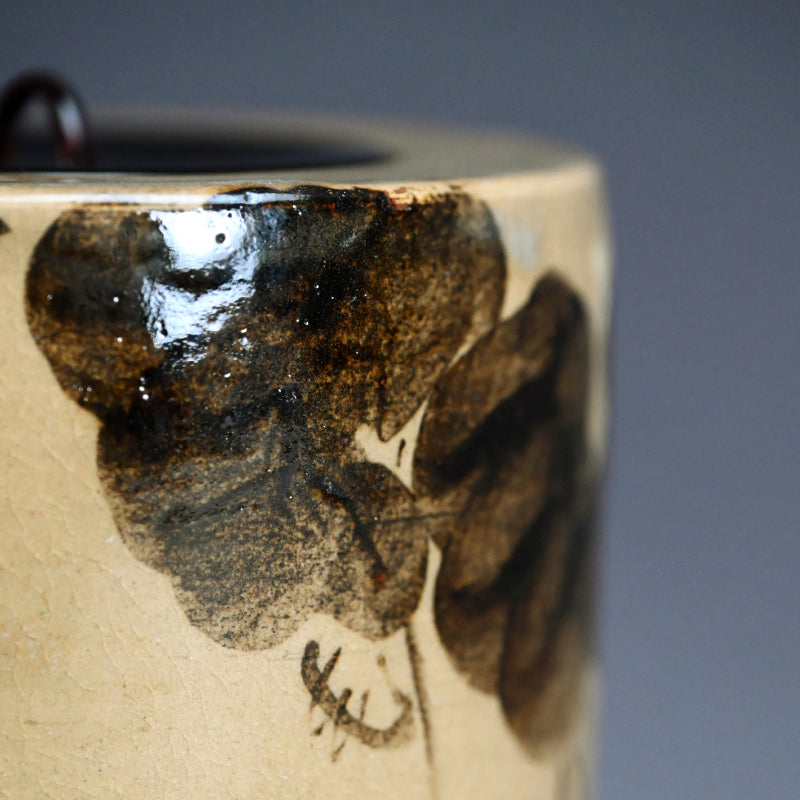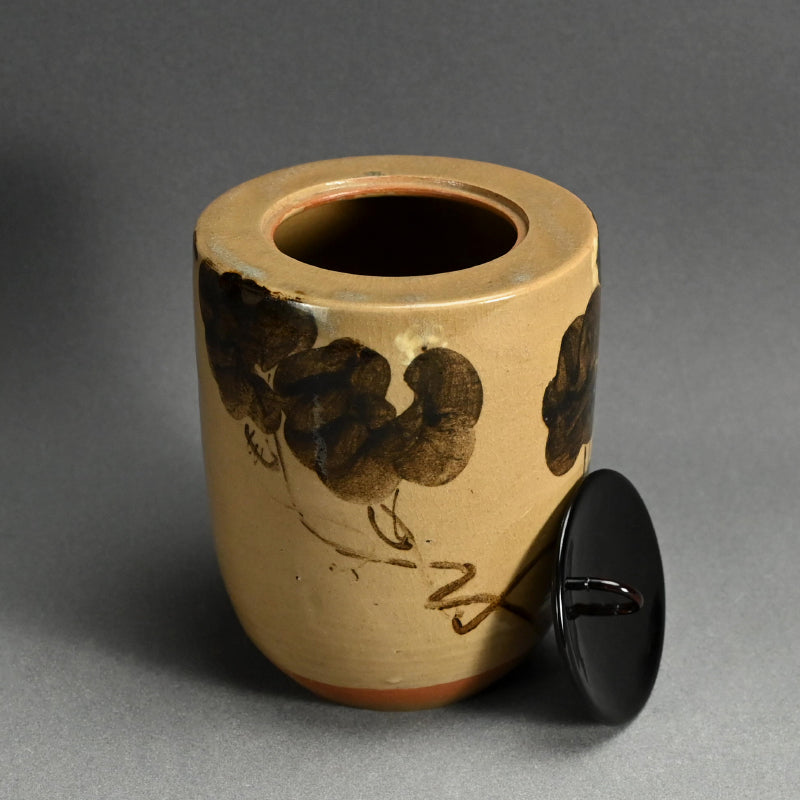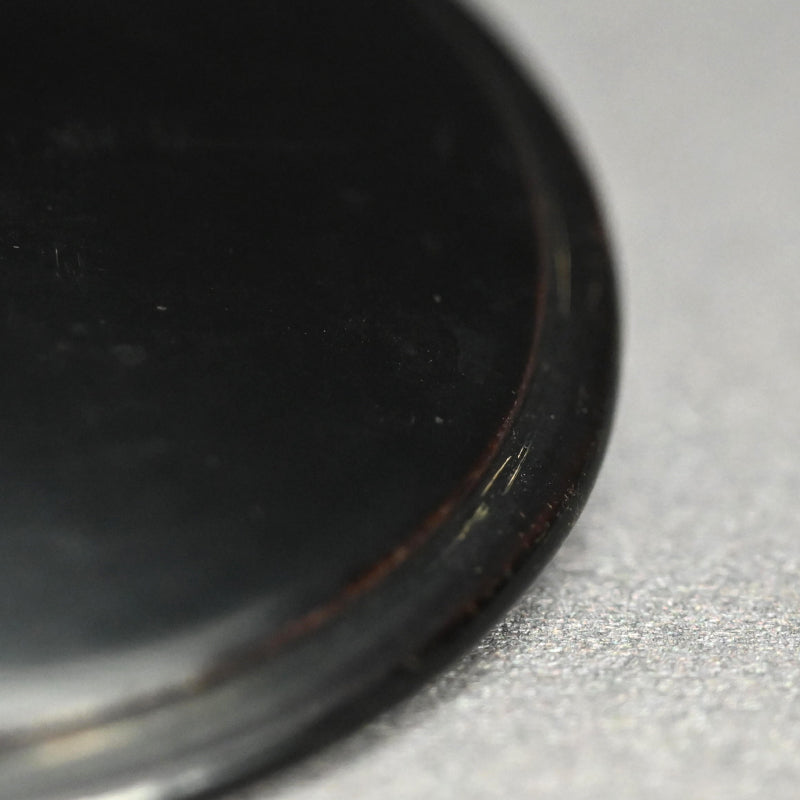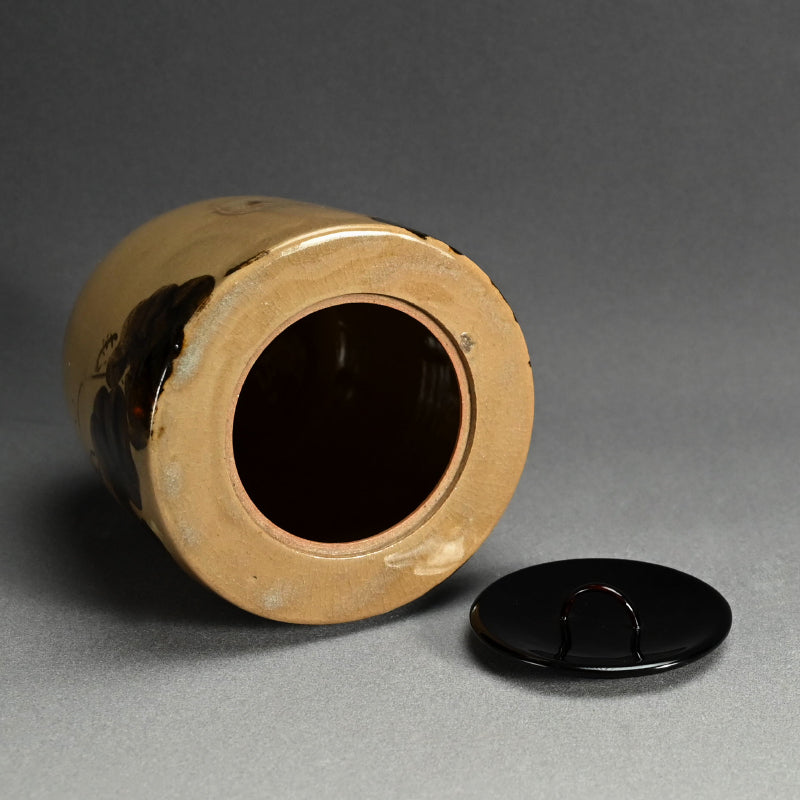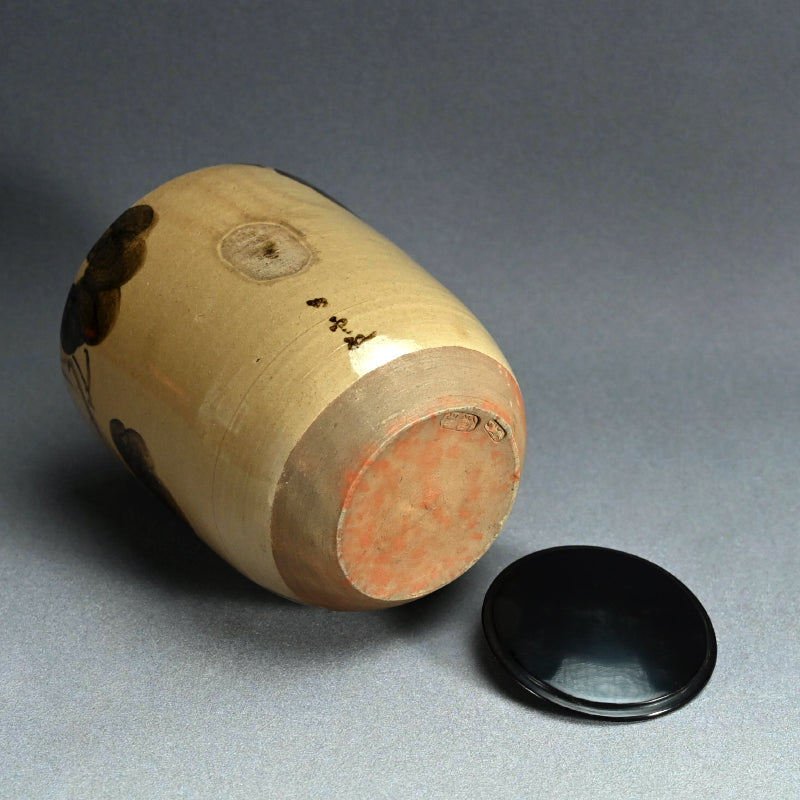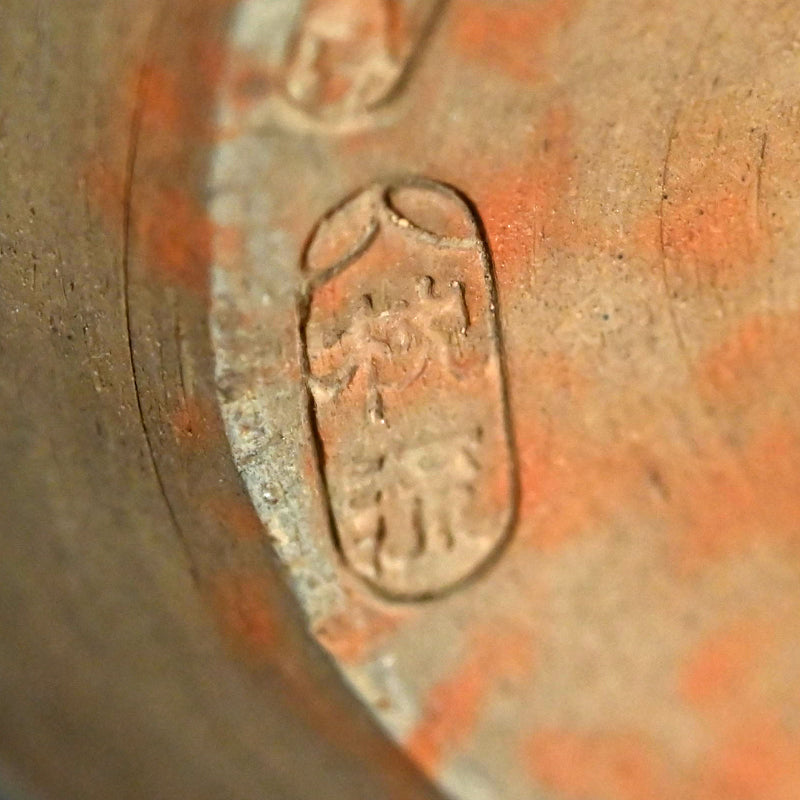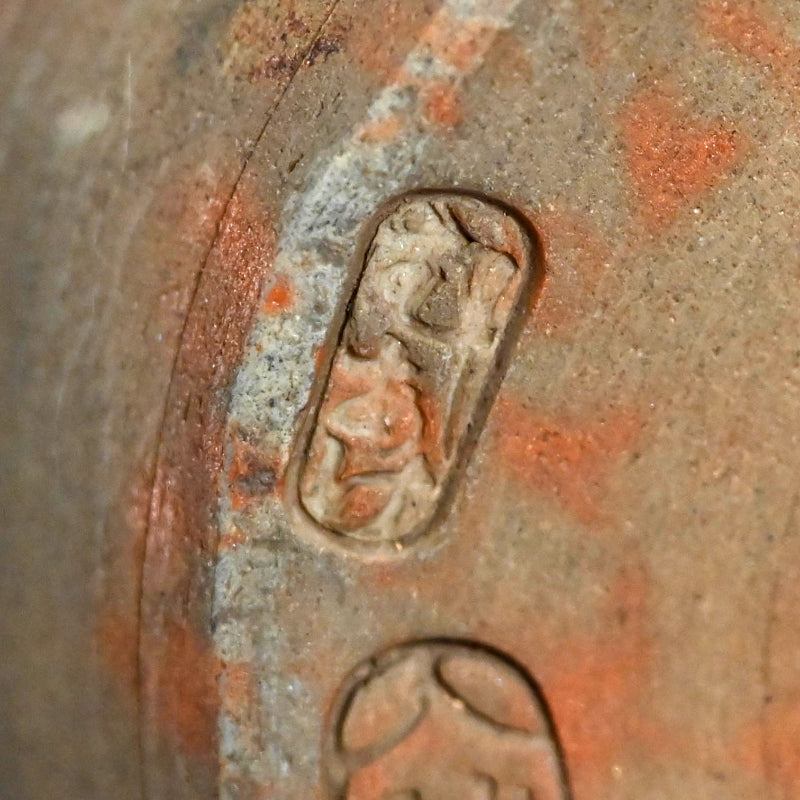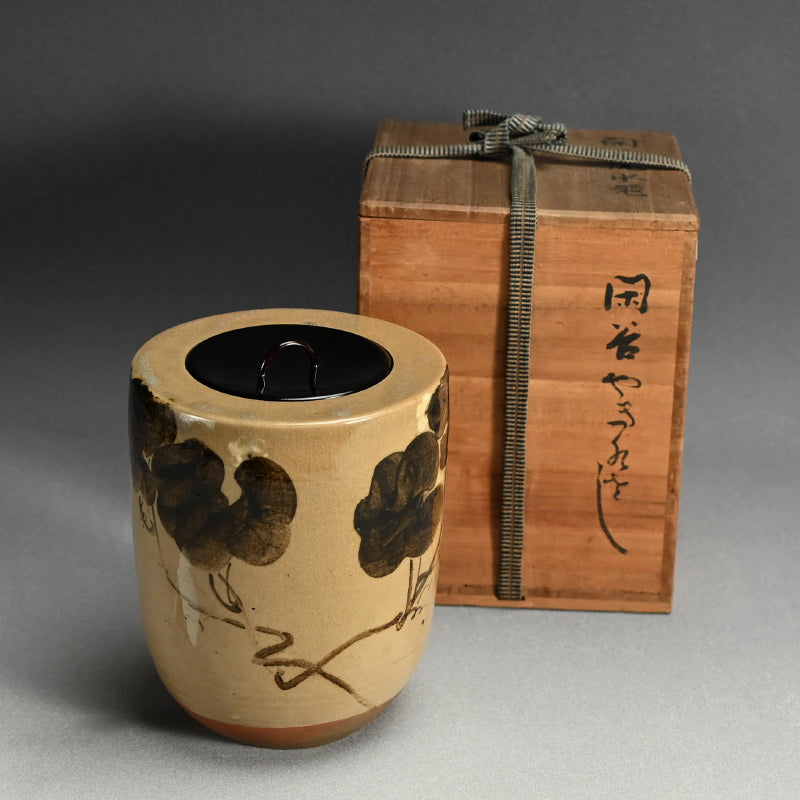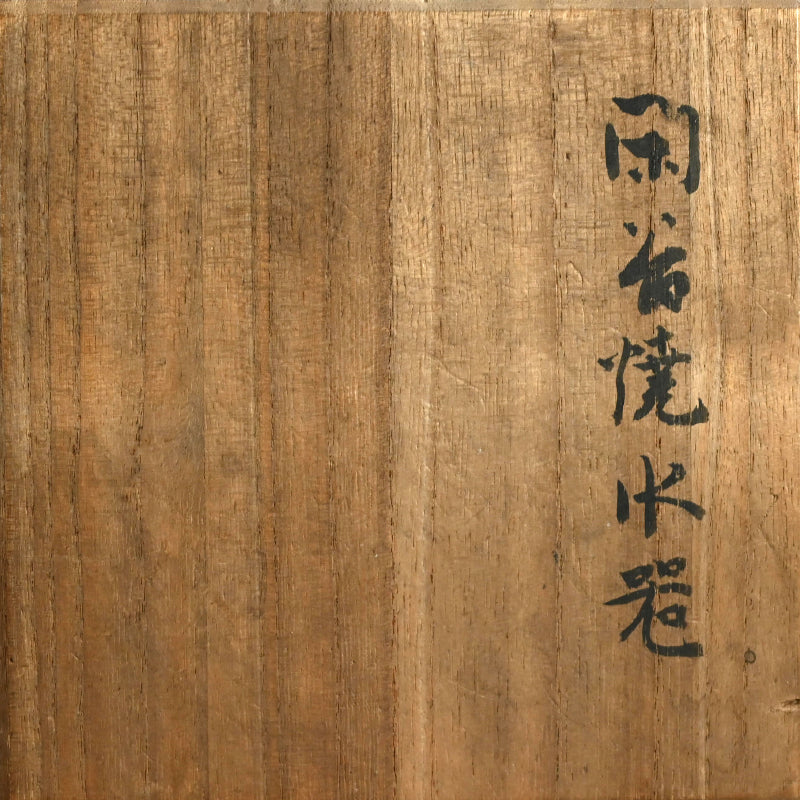Antique Japanese Mushiake yaki Mizusashi
Antique Japanese Mushiake yaki Mizusashi
Item Code: K966
Couldn't load pickup availability
A Mushiake Yaki Mizusashi fresh water jar for use in the Japanese Maccha Tea Ceremony decorated with flowering vines signed what appears to be Nyoun with small black lacquered lid featuring the Mushiake seal impressed firmly into the base alongside a stamp reading Jinchinryu. It is 15 cm (6 inches) diameter, 17.5 cm (7 inchers) tall and in excellent condition, enclosed in a period wooden box signed inside by a tea master. Meiji to Taisho period. Mushiake ware is distinguished by its use of a transparent ash glaze made from locally refined pine ash. Depending on the firing and the thickness of the glaze, soft shades of blue, red, or yellow emerge, lending the surface a subtle luminosity. The vessels are typically thinly potted and light in character, with a rustic refinement reminiscent of Kyoto’s Awata tradition.
The beginnings of Mushiake ware are traced to around three centuries ago, when it was associated with the Igi family, chief retainers of the Okayama domain. Local production gained momentum in the 1830s under Imakichi Kichizō, who employed potters from Harima Province. Yet the inclusion of Bizen-style wares led to conflict with established Bizen kilns, resulting in punishment of the offending potters.
In 1847, Igi Tadasumi (Sanzansai) reopened the garden kiln and invited leading Kyoto potters such as Seifū Yohei, Raku Chōzō, and Miyagawa (Makuzu) Kōzan to contribute. Under their influence, Mushiake ware shifted toward a refined, Kyoto-style aesthetic with thinly potted forms reminiscent of Awata ware. However, during the turbulence at the end of the Edo period, the kiln passed from Tadasumi to Mori Kakutarō and was reorganized as a private kiln.
Share
